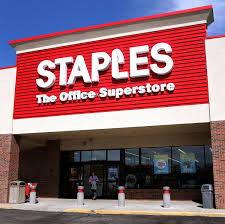
by Lee Gesmer | Oct 27, 2005 | Trademark
Office Depot, the office supply giant, has filed a lawsuit against arch rival Staples in U.S. District Court in West Palm Beach, Florida. Office Depot’s complaint alleges that Staples has engaged in trademark infringement, unfair competition, false advertising, and deceptive trade practices by buying VIKING, a trademark owned by one of Office Depot’s subsidiaries, as an advertising keyword from Google. Google has successfully defended its right to use third party trademarks in its keyword advertising program in a number of recent suits, including the recent GEICO v. Google case that we first discussed here, and reported settled here, but this is the first time that a trademark owner has bypassed Google and gone directly after the company actually buying the keywords.
Assuming this case doesn’t settle, we expect that Staples ultimately will prevail, as keyword advertising on the Internet these days is analogous to the completely legal practice of Burger King putting up a billboard next to a McDonald’s in the brick-and-mortar world. However, at the present time a search of VIKING does not return a paid advertisement for Staples, suggesting that Staples may be negotiating a settlement with Office Depot, or is attempting to mitigate future damages.
by Lee Gesmer | Oct 10, 2005 | Business Lit. Session, Courts
The Massachusetts Bar Association held an outstanding conference on the BLS in Boston on September 29, 2005. Several interesting documents distributed at the conference are linked below.
Here are a few observations on the conference.
First, the question foremost on everyone’s mind is whether Judge Allan Van Gestel will be “recalled” once he reaches the mandatory retirement age of 70 in December. In the eyes of most business lawyers in Massachusetts Judge Van Gestel is synonymous with the BLS. He was the first and only judge in the session five years ago, and although the session has had several other judge rotate through a second session (BLS2), its hard to imagine the BLS without Judge Van Gestel at the helm.
Moreover, Judge Van Gestel has created a Superior Court jurisprudence in the BLS which gives an unprecedented level of predictability to Superior Court practice. A quick Westlaw search on “Van Gestel” during the last five years results in over 250 written decisions.
It’s common knowledge among members of the bar that Judge Van Gestel is eager to be recalled after he turns 70 at the end of the year. Judge Van Gestel confirmed this over lunch with several lawyers on September 29th. However, as the Judge told the lawyers at his table, although many Appeals Court judges have been recalled in recent years (owing to an inadequate number of judges to handle the caseload on that bench) it has been twenty-five years since a Superior Court Judge has been recalled.
While Judge Van Gestel appeared to be optimistic that he would be recalled, recall requires action by both the Chief Justice of the Supreme Judicial Court and the Chief Administrative Judge of the Superior Court, and we can’t assume that this is a done deal until it actually happens.
Second, the judges (and some of the speakers, many of whom did a tremendous amount of work for this conference), made a few interesting points:
- The BLS is the court where many employers try to enforce non compete agreements. One speaker who had reviewed all of the BLS decisions in this area reported that preliminary injunctions in this area succeed only 30% of the time. Listening to Judges Van Gestel, Gants and Burns discuss their attitudes on the enforceability of non competes left me with a distinct impression: although this special session of the Superior Court wants to be known as the Business Litigation Session, it does not want to be known as the “Pro-Business Litigation Session,” and businesses shouldn’t assume that they have an edge in enforcing non compete agreements before this court. In fact, just the opposite may be true.
- The judges noted how rare jury trials are in the BLS. Many Massachusetts lawyers have attended “View From the Court” programs where trial statistics are discussed by the Chief Administrative Judge, and hear the discouraging (to the ear of a trial lawyer) statistics: approximately 96% of all civil cases settle, and the few that don’t tend to be tort cases. It’s no surprise, therefore, to hear that trials are even scarcer in the BLS, where (one would hope) emotions play a minimal role and rationale business people objectively assess their chances before wading into the unpredictable waters of jury trials.


